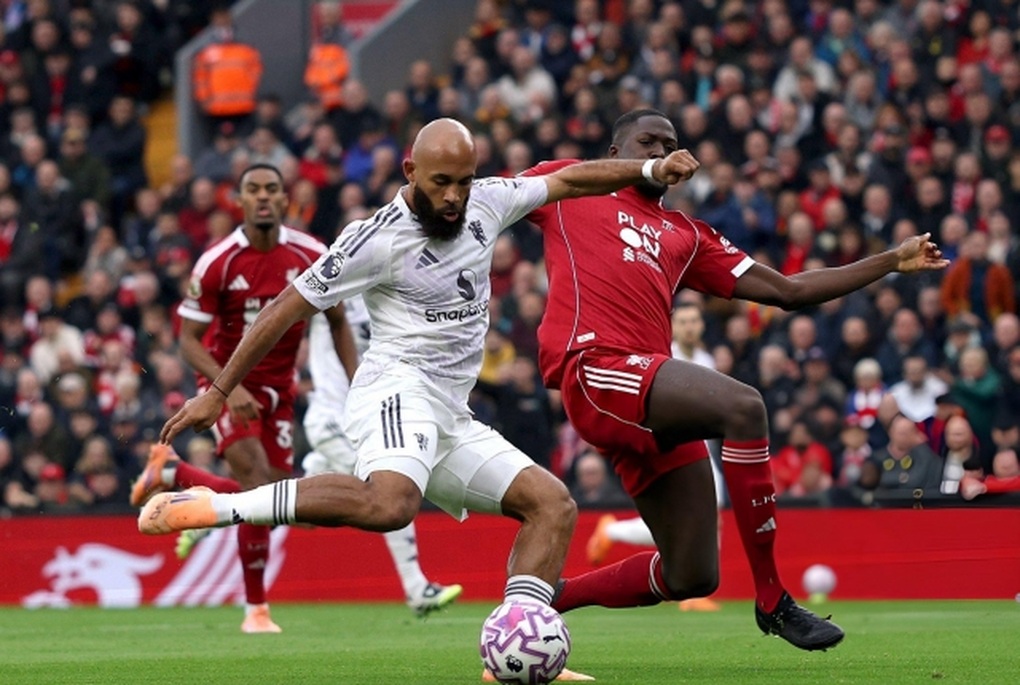The Vietnam Federation of Commerce and Industry (VCCI) has just issued a document providing comments on the Draft Decree replacing Decree 06/2017 on betting business on horse racing, dog racing and international football drafted by the Ministry of Finance .

Sports betting models in each country and territory are not the same (Photo: Observer).
In fact, sports betting is not a new issue in the world . However, it still has many different views, depending on each country and territory.
In particular, many Muslim countries have completely banned sports betting. They consider this issue to be morally unacceptable. Countries that have completely banned it include Algeria, Saudi Arabia, Libya, UAE, Türkiye... Even Muslim countries in Southeast Asia such as Brunei have completely banned this issue.
Brunei has one of the strictest anti-sports betting policies in the world, banning all forms of gambling by law in 2024. Brunei has also never considered the idea of a state-run betting market.
Other non-Muslim countries that also completely ban sports betting are China, North Korea, and Cuba. In China, if you want to “try your luck,” you only have two options: participating in the welfare lottery and the sports lottery. However, the Chinese government also has very strict regulations, even though the revenue from these two types is quite large.
According to data from the Ministry of Finance of China in May this year, the revenue from these two lottery models amounted to about 57 billion yuan (about 7.95 billion USD), up 19.8% over the same period last year. Of which, revenue from sports lottery soared 26% over the same period last year, to 38.51 billion yuan (5.4 billion USD).
Most European countries allow sports betting under a licensing framework. Operators must be registered, apply social responsibility rules, implement KYC/AML (identity verification & anti-money laundering) and comply with advertising restrictions. They limit betting to people 18 years and older.
The UK is one of the most vibrant markets in the world, with around 43% of Brits betting monthly. This is understandable as the Premier League is the most attractive tournament on the planet. Moreover, UK bookmakers always come up with many unique betting forms to attract players.

Premier League matches are exciting and attract a lot of attention (Photo: Getty).
The UK sports betting industry generates £14 billion in revenue each year, but it also seeks to protect players from being left “thirsty” and bankrupted by betting.
The UK Gambling Commission was established in 2005 with the aim of regulating gambling and betting activities. The Gambling Act of 2005 was established with the key points of preventing gambling-related crimes, ensuring fairness, and protecting vulnerable people (especially children).
Meanwhile, in Germany, the German Interstate Treaty on Gambling (ISTG) was established to regulate online gambling in Germany across all 16 states. They also have strict regulations for players such as:
The betting limit is only about 1,000 euros per month (about 30.6 million VND). This number can be increased upon request, if the player can prove his income. All player data is recorded and verified regularly.
Units opening sports betting services must be licensed and regulated by the State.
Children under 18 years of age are not allowed to participate in betting activities of any kind.
The system prevents players from participating in too many games of chance, with many different service providers to avoid “thirst”.
Players can be banned if they are “thirsty”, to help them avoid the consequences of gambling addiction. Service providers are required to use the OASIS banning system.
Similarly, in France, marketing of sports betting will be limited. In addition, service providers are required to have a system to prevent players from “over-playing”. Maximum bets are also regulated depending on each provider and each type.
In the US, sports betting is more “relaxed” than in Europe. There are 38 states (plus Washington DC and Puerto Rico) that offer some form of legal sports betting. There are 30 states that allow online sports betting via smartphone apps or websites. Washington DC and Puerto Rico also allow online betting.
In 2018, the Supreme Court struck down the PASPA Act, the federal ban on sports betting. The ruling allows each state to decide whether or not to legalize sports betting within its borders.
Mississippi allows sports betting via app but only at licensed casinos. Montana offers live betting through lottery machines and an app that only works at authorized Sports Bet Montana locations. Meanwhile, Alabama, Alaska, California, Georgia, Hawaii, Idaho, Minnesota, Oklahoma, South Carolina, Texas and Utah are the states that do not allow sports betting.
There are 25 states that absolutely prohibit athletes and their associates from participating in sports betting to ensure fairness. Due to the regulations of each state, there are states that allow very large bets but there are some states that have restrictions. The states of Arizona, Arkansas, Colorado, Connecticut, Florida… only allow people 21 years of age and older to participate in betting.
According to the latest figures, the total revenue of the sports betting industry in the US is up to 47.28 billion USD, of which the suppliers pay nearly 9.5 billion USD in taxes. That is a huge number. New York generates the most revenue with 6.7 billion USD. Next is New Jersey with 5.1 billion USD.
In short, there is no standard limit related to sports betting globally. Each country and territory will have its own regulations and limits to control players as well as bring maximum revenue.
According to VCCI, raising the sports betting limit to 100 million VND/person/day will create conditions for legal businesses to approach high-spending customers, while increasing competition with the underground market. The State can apply management tools in parallel such as player identification, cash flow monitoring, and risk warnings to limit negative impacts...
Regarding the ownership ratio limit, the total ownership of foreign investors currently does not exceed 49%. VCCI believes that this level is not enough to attract large capital, modern technology and international management experience. The difference between 49% and 50%, although small in number, has great significance in terms of control and investor psychology. VCCI recommends raising it to 50% to create a positive message about open-door policy and investment attraction.
Regarding State budget contributions, the minimum level for the average budget is 10% of ticket sales revenue after deducting prize payment costs, including special consumption tax (30%) and value added tax (10%).
Source: https://dantri.com.vn/the-thao/ca-cuoc-the-thao-tren-the-gioi-muon-hinh-van-trang-20251022120800227.htm






![[Photo] Prime Minister Pham Minh Chinh chairs meeting on nuclear power plant construction](https://vphoto.vietnam.vn/thumb/1200x675/vietnam/resource/IMAGE/2025/10/22/1761137852450_dsc-9299-jpg.webp)































































































Comment (0)